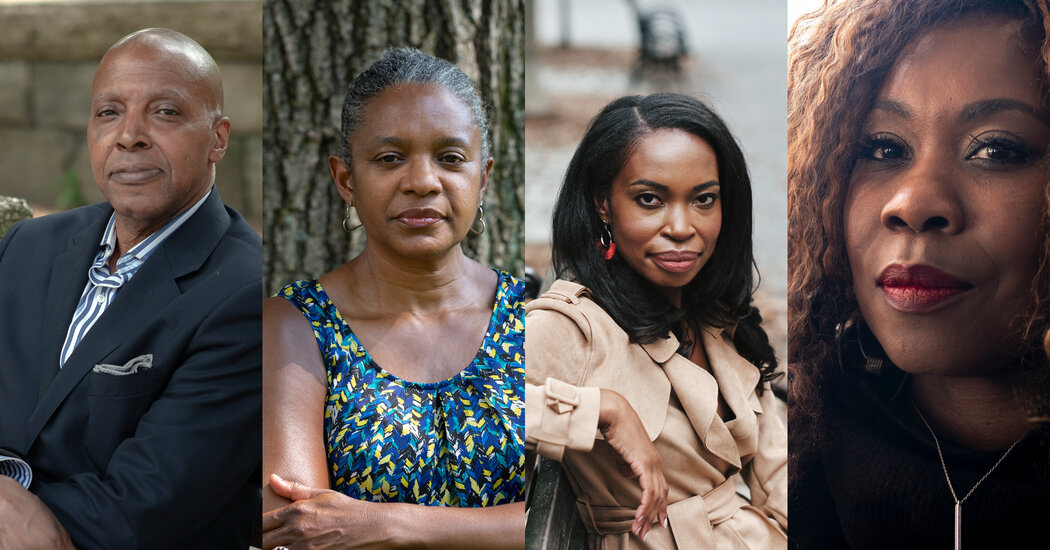
More than three years after nationwide protests over racial inequality led publishers to promise they would reshape their overwhelmingly white industry, a survey showed they made little progress toward creating a more diverse publishing work force.
White workers made up 72.5 percent of the book business in 2023, according to a new report from the publishing house Lee & Low. That marks a slight decrease from 2019, when the survey found that white people accounted for 76 percent of publishing industry employees. In 2015, that figure was 79 percent.
These changes are hardly the transformation many hoped for, and are likely to ignite debate about whether publishing companies have faltered in their pledge to prioritize racial diversity.
The slow pace of progress reflects what many in the book world say are entrenched structural and cultural problems.
“Publishers went out of their way to embrace diversity, equity and inclusion practices, but that intensity seems to be on the wane these days,” said Erroll McDonald, vice president and executive editor at Alfred A. Knopf, who has worked in the industry for 46 years and is one of the few Black executives in publishing’s higher echelons. “Despite all the talk of imminent change, that the industry was going through a revolution and it would look completely different in five or 10 years, that has proven not to be true.”
But Jason Low, the publisher and an owner of Lee & Low Books, a children’s book publisher focused on diversity, said that while change has come slowly, there is reason for optimism.
“We are consistently moving in the right direction, maybe not as quickly as we’d like,” said Mr. Low, who was a lead author on the report along with Laura M. Jiménez, a professor at Boston University who specializes in children’s literature. “I’m actually quite pleased and hopeful.”
The survey comes as political backlash to diversity, equity and inclusion programs have spread across the country. Critics say that measuring diversity by looking at race and ethnicity, like this survey does, creates an incentive for companies to favor candidates of color for certain jobs, potentially bypassing white applicants.
Companies are weighing the possibility of lawsuits, some business leaders have criticized the efforts, and many states have considered or passed laws that target diversity programs.
“Trying to create more space for inclusions, for others, it’s a battle,” said Linda Duggins, a longtime publishing executive who is on the board of the National Book Club Conference, which brings together Black authors and readers from around the country.
Lee & Low’s survey found that the percentage of Black people was virtually unchanged from 2019 to 2023 — around 5 percent — while the percentage of Latino employees fell from 6 to 4.6 percent.
The greatest increase was in the number of biracial and multiracial employees, which grew to 8.4 percent from 3 percent.
To create its report, Lee & Low commissioned a survey of more than 190 companies, including large and smaller publishing houses, university presses, literary agencies and review journals, and analyzed responses from more than 8,640 people. (In addition to race, the survey queried employees about age, gender, sexual orientation, disability, their work location and which department they work in.)
The data is not exhaustive, and the report says that each iteration of the survey, conducted every four years, includes a “much larger participant pool,” which could affect the data. But Lee & Low’s survey is the only broad, industrywide analysis of diversity in the publishing industry’s work force.
Since making pledges to increase diversity three years ago, most of the biggest publishing companies have made a concerted push to recruit and publish more people of color. But it can take years, or even decades, for people to work their way up to a high-level editorial position where they oversee book acquisitions.
The lack of diversity is even more pronounced in publishing’s leadership. In 2023, white people held 76.7 percent of executive positions, a percentage that has barely budged since 2019, when 78 percent of executives were white.
Many in the industry say that while some progress has been made since 2020, there have also been setbacks. Some prominent Black editors have quit the business. Literary agents say that publishers’ appetite for books that examine race and racism has dwindled. And while many publishers promised to address the stark racial disparity among authors they publish, the literary landscape still skews heavily toward white writers.
“Publishing houses and institutions within this industry are not set up for people of color,” Ms. Duggins said. “You’re bucking up against really entrenched cultures.”
The book world’s overwhelming whiteness has long been apparent, but it became a focal point in 2020, when Black writers and professionals shared simmering frustrations about the industry’s track record for hiring and retaining employees of color, and for its treatment of nonwhite authors.
In response, major publishing houses promised action. Some created new imprints devoted to books by writers of color, and set internal diversity goals, hiring and promoting editors and publishers from diverse racial backgrounds. Many editors rushed to publish more titles by nonwhite authors.
While some of those titles sold well, others floundered, leading certain publishers to conclude that the market was saturated.
“There was this rush: ‘I need diverse authors, I need diverse authors,’” said Regina Brooks, the founder and chief executive of Serendipity Literary Agency in New York, who has worked in publishing for 30 years. “Because publishers weren’t acquiring smartly, the sales on those books didn’t meet up with the kind of advances they were offering.”
“It wasn’t that these books were bad books,” she added. “They were just books that the publishing industry didn’t have the internal structure to sell.”
Some current and former publishing executives from underrepresented backgrounds say that when they were brought on, their companies seemed to welcome the perspective they offered. But once they were in place, they found it difficult to make changes or acquire different kinds of books. They might be approved to bid on a project — but not enough to make a deal. Or they might acquire titles by authors of color, and get little support from marketing and sales, so the books failed to find an audience.
Low starting salaries have also hindered efforts to recruit workers from a variety of backgrounds. Publishing is often an apprenticeship business, where people start as assistants and work their way up. But salaries at the five biggest publishing houses generally start at about $50,000 a year. These salaries are an improvement over pay a few years ago, but they still deter many potential hires who do not have additional sources of financial support.
Corporate diversity efforts have also have also come under political pressure. A string of lawsuits challenging the legality of corporate D.E.I. efforts followed a ruling from the Supreme Court last year that barred colleges from using race as a criteria in admissions; the issue’s political volatility has made it harder for companies to set targets for the racial makeup of their companies.
Carrie Bloxson, who joined Hachette Book Group in 2021 as the company’s chief diversity officer, said that after the Supreme Court ruling, Hachette moved away from using the country’s racial demographics as a quantitative benchmark. (According census data released in 2021, white people accounted for 58 percent of the U.S. population in 2020.) Instead, they aim to have a pool of candidates that is inclusive not only racially, but also takes into account other factors, like candidates’ economic and education backgrounds.
Ms. Bloxson said that Hachette has gotten more diverse — according to a report the company released last spring, people of color made up 36.4 percent of its staff in 2022, an increase of 2.5 percent since 2021. But among the company’s top editors and publishers, change has been slower, she said.
“Once you get to the senior levels, it’s still super white,” she said.
In 2020, Krishan Trotman, then an executive editor at Hachette, started a new imprint at the company called Legacy Lit, with a focus on works by writers of color. The imprint has seen some success with titles like Antonia Hylton’s book “Madness,” which recently became a New York Times best seller.
Trotman — who is one of two Black publishers out of 25 at the company — said the lack of diversity among top executives remains an obstacle throughout the industry.
“It has been harder for brown folks in publishing to find mentors at the executive level,” she said.
At the same time, though, she has seen some of the company’s diversity initiatives start to pay off, she said.
“When I walk around the office, I do see more brown faces,” she said, “which brings me joy.”


![Mowgli: Legend of the Jungle | Official Trailer [HD] | Netflix Mowgli: Legend of the Jungle | Official Trailer [HD] | Netflix](https://www.todaysauthormagazine.com/wp-content/uploads/2024/09/1726090709_maxresdefault-120x86.jpg)



